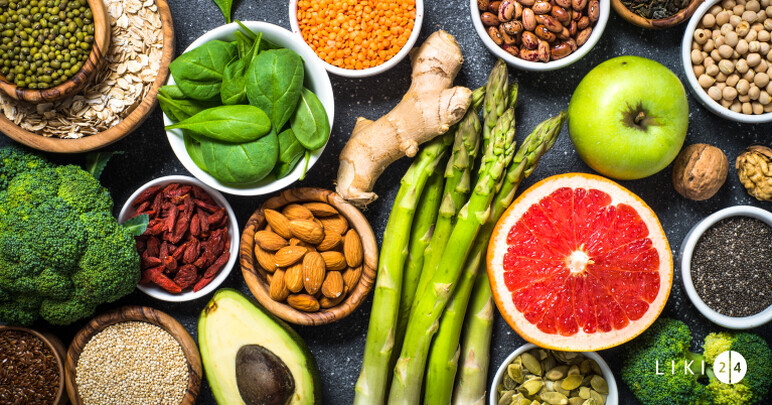Probicol IBS, 20 capsule vegetali, Innergy
Probicol IBS
Descrizione Probicol IBS
Le informazioni nella sezione Domande e Risposte sono state create dal team di Liki24.co.uk e si basano sulle istruzioni ufficiali del produttore.
Probicol IBS è un integratore alimentare con benefici clinicamente documentati nella gestione dei sintomi associati alla sindrome dell'intestino irritabile. Contiene il ceppo probiotico Lactobacillus plantarum 299v, noto per la sua capacità di colonizzare efficacemente il tratto gastrointestinale e contribuire al ripristino dell'equilibrio della flora intestinale.
L'uso dei probiotici nel trattamento della sindrome dell'intestino irritabile è diventato un approccio integrativo promettente, vista la crescente evidenza del coinvolgimento del microbioma nell'eziopatogenesi dei disturbi funzionali dell'apparato digerente.
Forme di rilascio
Probicol IBS è disponibile sotto forma di capsule orali, ciascuna contenente almeno 20×10⁹ unità formanti colonie (UFC) di Lactobacillus plantarum 299v. Questa formulazione consente il rilascio controllato del ceppo batterico nell'intestino, proteggendo l'integrità probiotica nell'ambiente acido dello stomaco e garantendo l'efficacia della colonizzazione intestinale.
Indicazioni per l'uso
Probicol capsule è indicato in particolare alle persone con diagnosi di sindrome dell'intestino irritabile, in tutti i suoi sottotipi (con prevalenza di costipazione, diarrea o forme miste). L'integratore contribuisce a:
- riequilibrare l'ecosistema batterico intestinale nelle disbiosi associate alla sindrome dell'intestino irritabile
- modulare la risposta immunitaria a livello gastrointestinale e i processi infiammatori subclinici
- alleviare i sintomi digestivi come dolore addominale, gonfiore, flatulenza e disagio postprandiale.
Oltre all'indicazione principale, Probicol IBS può essere utile anche come coadiuvante in vari disturbi gastrointestinali accompagnati da squilibri del microbiota o dopo trattamenti antibiotici.
Riepilogo del dosaggio
La dose consigliata è di 1 capsula al giorno, da prendere per via orale, preferibilmente durante i pasti o secondo le indicazioni del medico.
È importante rispettare un intervallo minimo di 2 ore tra la somministrazione di antibiotici e Probicol IBS, per evitare l'inattivazione del ceppo probiotico da parte delle sostanze antimicrobiche.
Controindicazioni
Probicol IBS è generalmente ben tollerato, ma non è raccomandato senza il parere del medico nei seguenti casi:
- persone in trattamento immunosoppressivo o con sistema immunitario indebolito
- pazienti con infezioni vaginali/urinarie ricorrenti
- persone con cateteri venosi centrali
- pazienti recentemente operati
- pazienti con sanguinamento rettale
- persone con ipersensibilità nota a uno qualsiasi dei componenti del prodotto
In questi casi, la somministrazione deve essere effettuata solo su espressa indicazione del medico curante, che valuterà il potenziale rischio di traslocazione batterica e lo stato immunitario del paziente.
Particolarità d'uso
Il Lactobacillus plantarum 299v è un ceppo probiotico con caratteristiche uniche:
- ha la capacità di aderire alla mucosa intestinale
- fermenta i carboidrati e contribuisce alla formazione di un ambiente favorevole per una microflora sana
- stimola la produzione di muco intestinale, fungendo da barriera fisica contro i patogeni
- inibisce la colonizzazione di batteri patogeni attraverso la competizione per i siti di adesione
Inoltre, studi clinici suggeriscono che questo ceppo ha un effetto benefico sulla diversità del microbiota intestinale, un importante indicatore della salute dell'apparato digerente.
Effetti collaterali
In generale, Probicol IBS è ben tollerato dalla maggior parte dei pazienti. Le reazioni avverse sono rare e di lieve intensità, tra cui:
- leggero gonfiore addominale o flatulenza nei primi giorni di somministrazione,
- raramente, reazioni di ipersensibilità agli eccipienti o ai componenti della capsula.
Questi effetti scompaiono solitamente spontaneamente con l'adattamento della flora intestinale e non richiedono l'interruzione del trattamento.
Interazioni con altri farmaci e alimenti
Probicol IBS non interagisce con la maggior parte degli alimenti o dei farmaci. Tuttavia, si raccomanda di rispettare un intervallo di 2 ore dalla somministrazione di antibiotici, per prevenire la distruzione del ceppo probiotico.
La somministrazione concomitante con prebiotici (fibre solubili) può aumentare l'efficacia probiotica per sinergia (effetto sinbiotico).
Sovradosaggio
Finora non sono stati segnalati casi di sovradosaggio con Probicol IBS. La somministrazione accidentale di dosi superiori a quelle raccomandate non è generalmente associata ad effetti tossici, dato l'elevato profilo di sicurezza del Lactobacillus plantarum 299v. Tuttavia, in caso di grave disagio gastrointestinale, si consiglia di consultare il medico.
Condizioni di conservazione
Per mantenere la vitalità del ceppo probiotico, Probicol IBS deve essere conservato a temperatura ambiente, al riparo dall'umidità e dalla luce, preferibilmente al di sotto dei 25 °C, nella confezione originale ben chiusa. Tenere fuori dalla portata dei bambini. Il prodotto non necessita di refrigerazione, il che lo rende pratico e facile da usare.
Bibliografia
- PubMed, Il ruolo del Lactobacillus plantarum 299v nel supporto al trattamento di malattie selezionate
- PubMed, Studio clinico: il Lactobacillus plantarum 299v (DSM 9843) migliora i sintomi della sindrome dell'intestino irritabile
- Tandfonline, Effetto del trattamento con Lactobacillus plantarum 299v in un modello animale di sindrome dell'intestino irritabile
- MDPI, Psicobiotici come intervento nel trattamento della sindrome dell'intestino irritabile: una revisione sistematica
- WebMD, Lactobacillus plantarum
DOMANDE FREQUENTI
Probicol IBS è sicuro durante la gravidanza o l'allattamento?
Per quanto tempo posso assumere Probicol IBS?
Probicol IBS è adatto ai bambini?
Caratteristiche
| Categoria | Vitamine e integratori, Digestione sana, Gonfiore e coliche, Probiotici e Prebiotici, Dieta e nutrizione, Prodotti vegani |
| Brand | C. Hedenkamp, Innergy |
| Tipo di prodotto | Buste, Capsule |

Probicol IBS, 20 capsule vegetali, Innergy
Molto soddisfatto del prodotto























